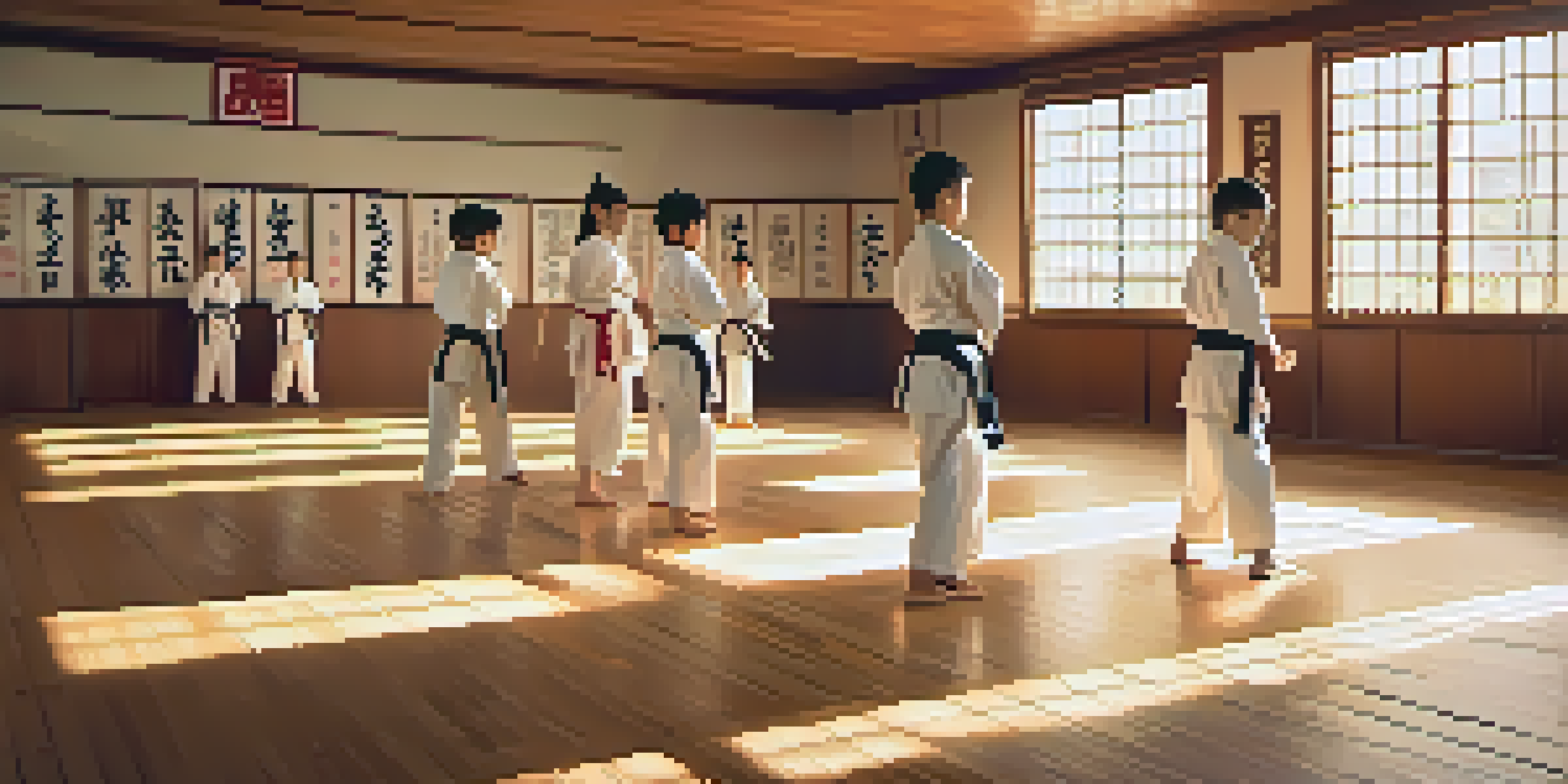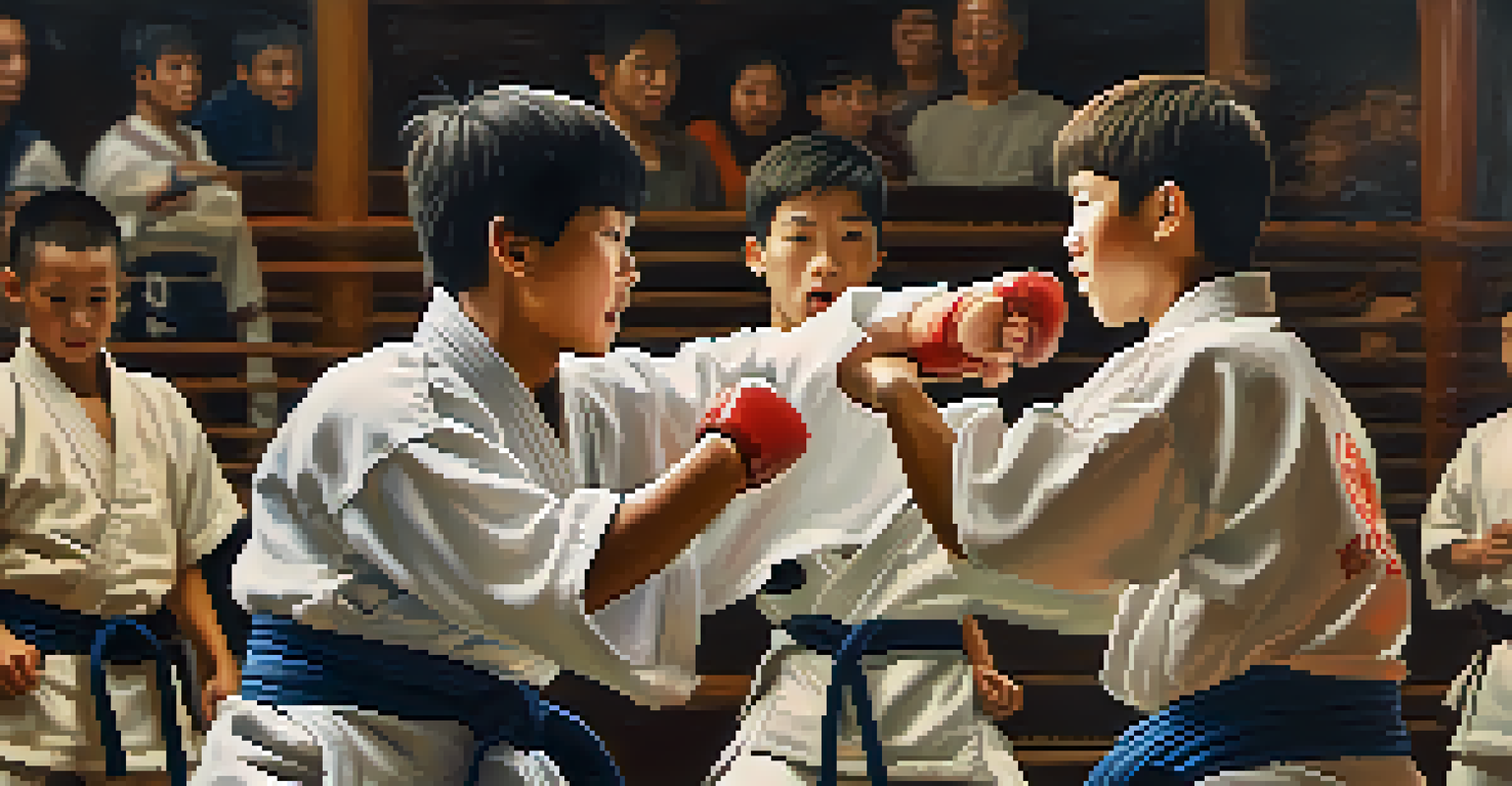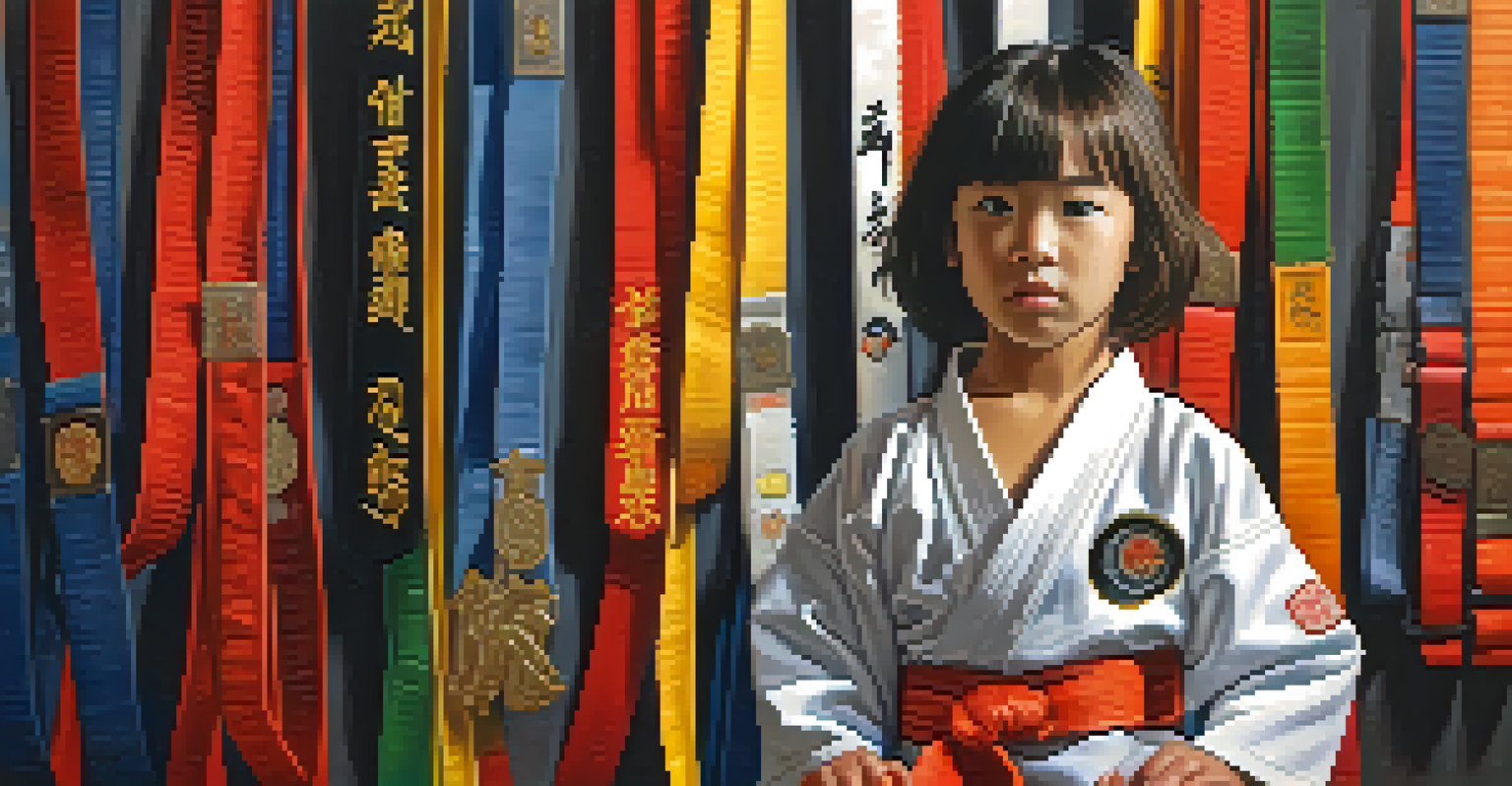The Healing Power of Martial Arts for Troubled Youth

Understanding Troubled Youth and Their Challenges
Troubled youth often face a myriad of challenges, including emotional instability, behavioral issues, and social isolation. These difficulties can stem from various sources, such as family dynamics, academic pressures, or exposure to violence. The resulting turmoil can lead to a sense of hopelessness and a lack of direction in life.
The greatest weapon against stress is our ability to choose one thought over another.
Many young people find it hard to express their feelings or seek help, which can exacerbate their struggles. This is where martial arts can step in as a powerful tool for transformation. By offering a structured environment, martial arts provide a safe space where these youth can begin to confront their challenges head-on.
The discipline involved in martial arts helps to instill a sense of routine and responsibility. As they engage in this physical practice, they can channel their emotions into something productive, paving the way for personal growth and healing.
Martial Arts as a Form of Therapy
Martial arts can be viewed as a form of therapy, promoting mental health and emotional resilience. Through techniques like meditation and mindfulness integrated into training, students learn to calm their minds and focus their energy. This practice can significantly reduce anxiety and improve overall well-being.

Additionally, martial arts encourage self-reflection and awareness. As youth progress in their training, they often gain insights into their behavior and thought patterns, helping them to make positive changes. This newfound self-awareness can be a game-changer in their journey toward healing.
Martial Arts as Healing Therapy
Martial arts promote mental health and emotional resilience through structured training, mindfulness, and self-reflection.
The physical aspect of martial arts also plays a crucial role in therapy. Engaging in regular physical activity releases endorphins, often referred to as 'feel-good' hormones, which can elevate mood and combat feelings of depression.
Building Self-Discipline Through Training
One of the most significant lessons taught through martial arts is self-discipline. Students learn that consistent practice leads to improvement, which fosters a strong work ethic. This lesson can transcend the dojo and positively impact other areas of their lives, including academics and personal relationships.
Martial arts is not about fighting; it’s about building a better person.
As youth set goals in their martial arts journey, they develop a sense of accountability. Each achievement, whether it's mastering a new technique or earning a belt, reinforces the idea that their efforts directly correlate to success. This realization can empower them to tackle challenges beyond martial arts.
Moreover, this discipline fosters resilience. When faced with setbacks, such as a failed sparring match or a difficult technique, students learn to persevere and remain committed to their goals, a skill that serves them well in life.
Fostering a Sense of Community and Belonging
Martial arts classes often create a tight-knit community, providing troubled youth with a sense of belonging. This is especially important for those who may feel alienated or disconnected from their peers. Being part of a supportive group can significantly enhance their self-esteem and sense of identity.
Through shared experiences during training, friendships blossom, fostering connections that can last a lifetime. These relationships provide a network of support that helps youth navigate their challenges together, reinforcing the idea that they are not alone in their struggles.
Building Self-Discipline and Resilience
Consistent practice in martial arts fosters self-discipline, accountability, and the ability to persevere through challenges.
Furthermore, the camaraderie built in martial arts can teach vital social skills. Youth learn to communicate effectively, respect others, and work as a team, all of which are essential for building healthy relationships outside the dojo.
Promoting Physical Fitness and Well-Being
Engaging in martial arts significantly contributes to physical fitness, which is essential for overall health. The rigorous training sessions improve strength, flexibility, and endurance, allowing youth to develop a positive relationship with their bodies. This newfound physicality can boost confidence levels and improve body image.
Moreover, martial arts training promotes healthy lifestyle choices. As youth become more aware of their bodies and capabilities, they often make better decisions regarding nutrition and self-care. This holistic approach to well-being can lead to lasting changes in their lives.
Physical fitness also correlates with mental health. A strong body can lead to a strong mind, making it easier for youth to cope with stress and anxiety. By integrating fitness into their lives, they take proactive steps toward creating a healthier future.
Teaching Conflict Resolution and Emotional Control
Martial arts are not solely about physical combat; they emphasize the importance of conflict resolution and emotional control. Students learn that fighting should be a last resort, and that conflicts can often be resolved through communication and understanding. This lesson is invaluable for troubled youth who may struggle with aggressive tendencies.
By practicing techniques that require patience and strategy, students develop skills in managing their emotions. This focus on emotional regulation helps them respond to challenging situations more thoughtfully rather than react impulsively. As a result, they can navigate conflicts with greater ease and maturity.
Fostering Community and Belonging
Martial arts create a supportive community that enhances self-esteem and teaches vital social skills for troubled youth.
Additionally, the emphasis on respect and honor within martial arts cultivates empathy. Youth learn to consider the perspectives of others, fostering a more compassionate approach to their interactions. This shift can lead to better relationships with peers, family, and authority figures.
Success Stories: Transformations Through Martial Arts
Many success stories highlight the transformative power of martial arts for troubled youth. For instance, a teenager who struggled with anger management found solace in karate, ultimately channeling his frustrations into disciplined training. Over time, he not only improved his skills but also learned to manage his emotions more effectively.
Another inspiring tale comes from a young girl who faced bullying at school. After joining a martial arts program, she gained confidence and self-esteem, enabling her to stand up for herself and advocate for others. This newfound strength changed her life, allowing her to embrace her uniqueness.

These personal transformations showcase the potential of martial arts to provide hope and healing. By sharing their journeys, these youth inspire others to consider martial arts as a viable path toward overcoming their own struggles.